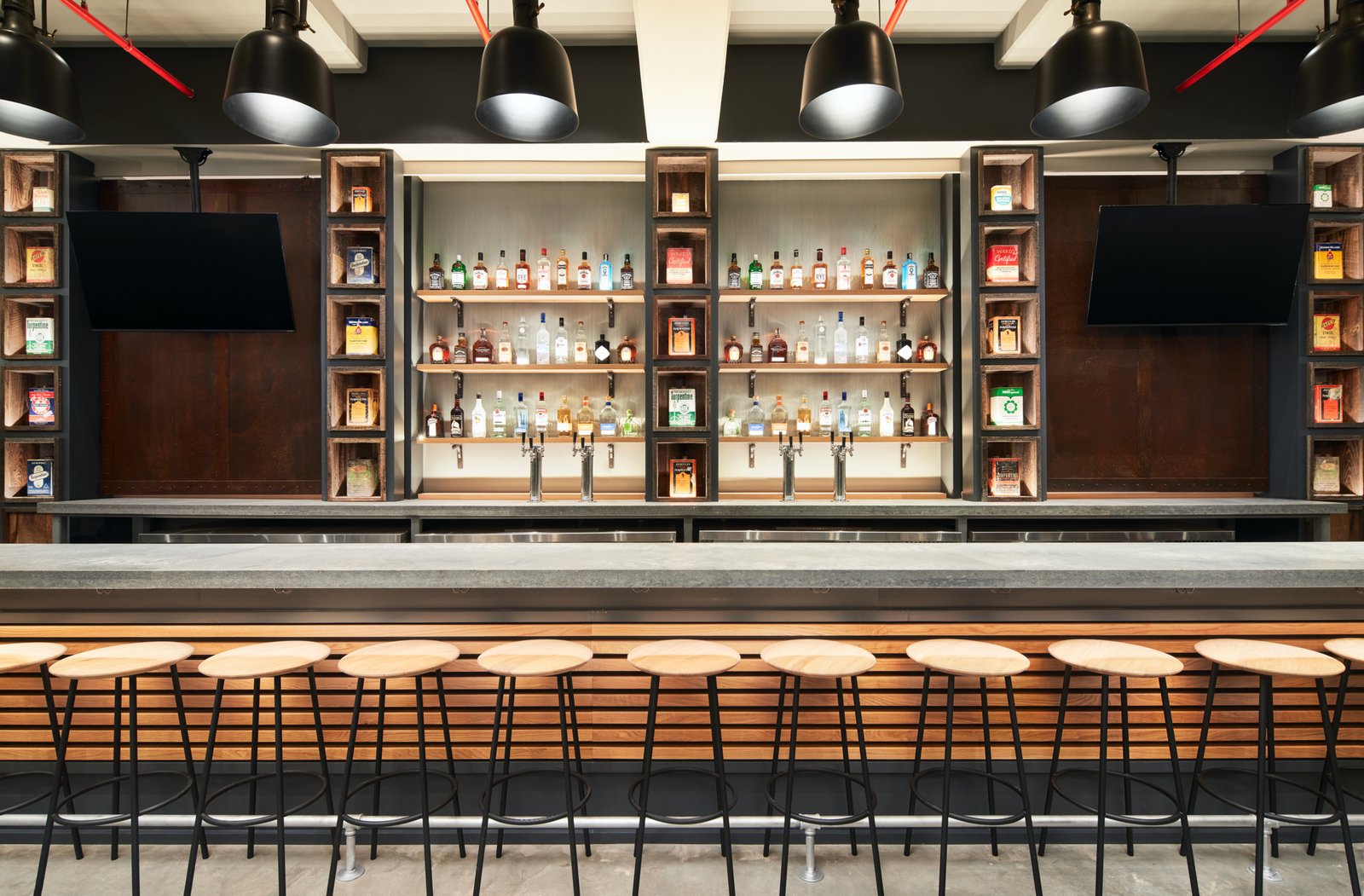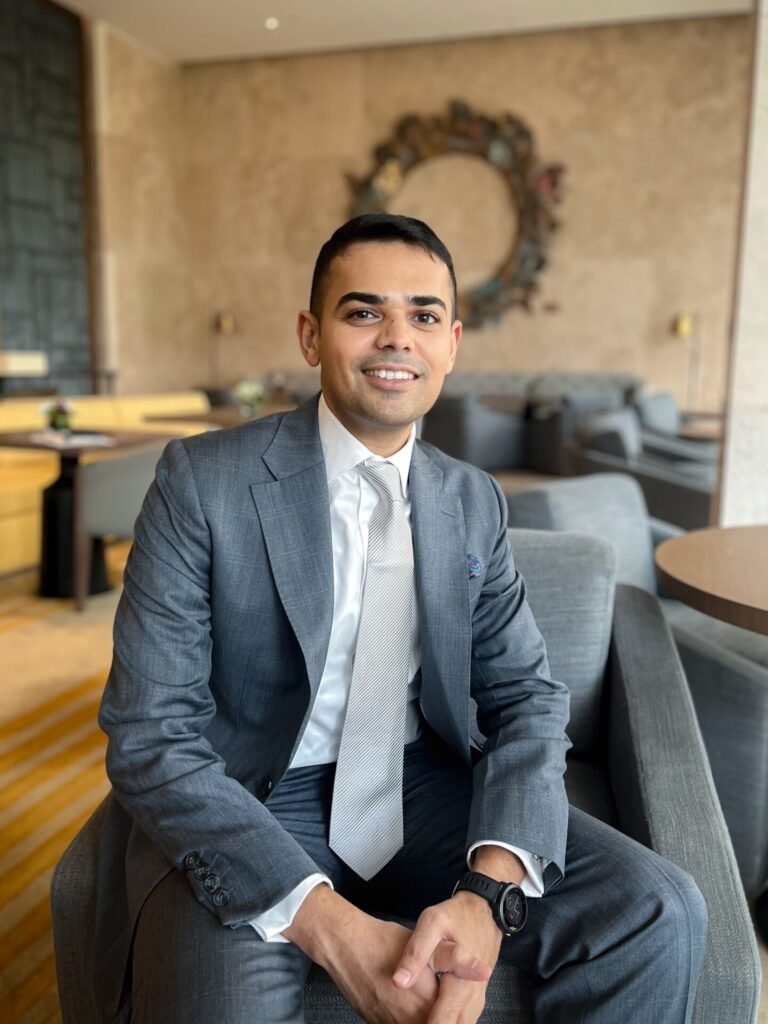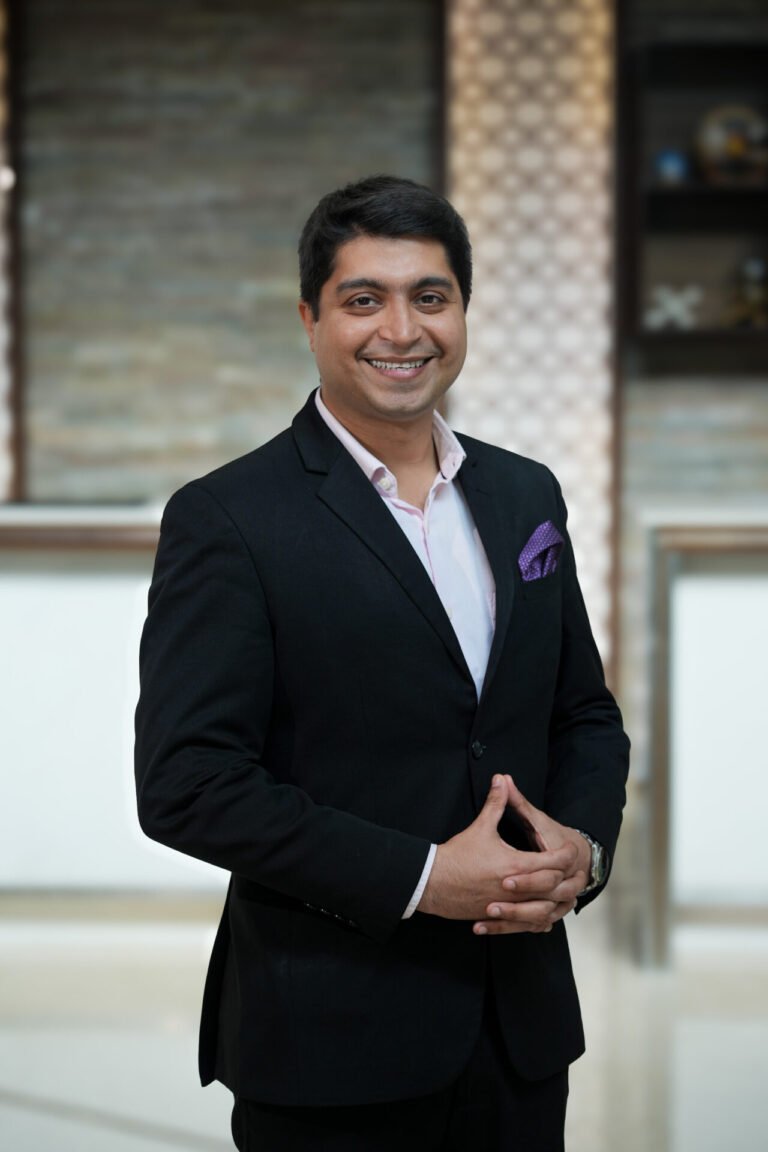Zero-waste, wellness-on-tap, & other top trends for 2022
The ubiquitous bar counter can be found worldwide and while each one differs by design, locale, menu, and culture, its purpose is universal – the easy flow of drink and conversation. And it was brought to a shocking halt in 2020. Pandemic images of unfilled taps, empty glasses, and barstools collecting dust will forever be etched in the minds of those who work in hospitality, but so will the feeling of elation when they finally reopened for business.
“For bars and restaurants around the world, the return of diners and drinkers in 2021 was a huge sigh of relief,” says Alex Valencia, Manager of Global Upscale F&B Solutions for IHG Hotels & Resorts. “But these were not the same guests that walked through their doors before the pandemic. They had learned how to make a good old-fashioned at home; now they were looking for something better, something different.”
Beverage programs with a strong point of view and bars that embraced brands with a conscience were just some of what patrons were seeking. With greater expectations for menus, methods, and messaging, 2022 will see a revival of a social drinking culture that is more inclusive and mindful.
Bitter, Sweet, & Sustainable
Bars are the social heartbeat of the restaurant world, and bartenders are the maestro. They are mixing drinks, making conversation, wiping spills, getting assistance for the over-indulged, and generally ensuring the atmosphere is optimal for human connection.
When the whole planet hit pause two years ago, beverage company Pernod Ricard looked around at the bartending community and asked a simple question – when we return, how do we do so for the better? The answer was a multi-faceted first-of-its-kind education program centered around sustainability in the bar space dubbed “Bar World of Tomorrow.”
“In the spring of 2020, Pernod Ricard introduced the novel program to the spirits industry,” says Amandine Robin, SVP of Communications and Sustainability for Pernod Ricard North America. “The initiative aims to democratize learning in the spirits industry, with a focus on sustainable and responsible bartending practices.”
In partnership with Pernod Ricard, Trash Tiki – an online community of bartenders committed to reducing waste – and the Sustainable Restaurant Association, IHG Hotels & Resorts has made the multi-language program available to all restaurants and bars across its premium and luxury collections.
“It’s a great way for us to embrace our company’s Journey to Tomorrow commitments in the F&B space,” says Valencia. “It’s also sparked creativity and reignited passion for an industry hit so hard in the last couple of years.”
“Bartenders and bar owners all over the world have really responded to the program, and it’s inspired new ideas to reuse food waste and create new cocktail recipes,” says Robin.
The program also recognizes something environmentalists and scientists have been emphasizing for generations – we all have a role to play in protecting the planet.
“Bar World of Tomorrow is a pivotal step in addressing sustainability and responsibility challenges in the bar industry,” says Robin. “Bartenders and bar owners have a role to play in reducing their waste, promoting sustainable brands, and embarking their consumers on this journey.”Previous



Next
Orange Is the New White
Twenty years ago, third-generation French winemaker Gérard Bertrand made a decision. The wines his family produced would never harm the land. Since then, Gérard Bertrand wines have utilized biodynamic agriculture to make some of the world’s greatest wines.
“Gérard Bertand is convinced that when you drink wine, you should taste somewhere – not something, and biodynamic practices are the best way to produce wines that reflect all shades of the terroir it comes from,” says Véronique Braun, communications director for Gerard Bertrand. “It’s also his belief that we have to respect the land and its biodiversity to produce the best tasting wines.”
Biodynamic agriculture has been around for several years. It espouses an unyielding commitment to using only natural processes and rejecting the use of anything that isn’t organically found in the land to cultivate growth. “We also use the lunar calendar for every stage of growth, which is another crucial component,” says Braun. “Depending on the position of the stars, it’s root day, flower day, leaves day.”
Braun says even the way they help the vine grow is done by preparing teas made with nettle from the vineyard mixed with pure water and sprayed on the vines. “There is an element of homeopathy to biodynamic agriculture,” says Braun.
In 2020, the label created its own version of an orange wine, which is made by crushing white grapes with the skin on. While there is a long history of orange wines – these sun-kissed pours are having a moment, and you can expect to see them on more bar menus, including ones at IHG properties, during the summer months.
“Gérard Bertrand loves tradition, which initially drew him to create an orange wine, but he also thought the terroir and land here in the south of France are perfect for developing an orange wine in a very modern, organic way,” says Braun. “The result is this beautifully colored wine that’s aromatic with a subtle bitter note at the end. This wine is perfect for food pairings too, and goes great with cheese, curries, and spices like saffron.”
IHG Hotels & Resorts is the exclusive hospitality partner for Gérard Bertrand, and it’s a wine partnership that is as harmonious as the wine maker’s agricultural philosophy. “It was a conscious decision for us to partner with IHG because we share a lot of similar values,” says Braun. “Taking care of the people, of the land – we completely connected with that.”
She also sees a lot of parallels between the worlds of travel and wine. “Wine is created for happiness,” says Braun. “When you share a glass of wine with someone, something special happens. I think that is one of many reasons we are happy to have this hospitality partnership because it’s about bringing people together, telling stories, and creating joy.”
Steeped in Wellness
IHG’s boutique hotel brand, Hotel Indigo, launched its tea partnership with Portland-based Steven Smith in 2021. This year the partnership is expanding.
“We’re working on an exclusive tea blend just for Hotel Indigo,” says Valencia. “It will be a unique mix of ingredients that promote a good night’s sleep.”
“The Steven Smith brand is extremely knowledgeable about tea and wellness. They are dedicated to sourcing single-origin teas and herbs from local sources,” says Valencia. “Things like ashwagandha, cardamom, and ginger root are crafted into these rich blends and delivered in beautiful, sustainable packaging with tea sachets that are fully biodegradable.”
Steven Smith offers 70 unique teas, including seasonal varieties. “There is a lot of emphasis placed on coffee because that’s what people want to start their day,” says Valencia. “But industry research shows that as the day goes on, more people drink tea in the afternoons and evenings.”
Tea is the number one consumed beverage on the planet and has a starring role at many IHG properties. (Learn more about them here.) The exclusive Steven Smith blend for Hotel Indigo is slated to launch by March. Till then, expect to see teas featured heavily in the bar space.
“Teas are really popular along with house made colas and syrups,” says Jill Cockson, F&B partner for Anna’s Place – a cocktail and premium spirits bar slated to open in early spring of 2022 at Hotel Indigo Omaha Downtown.
Cockson, a Kansas City based bar owner, says teas are used in both traditional cocktails and zero-proof cocktails, and she has seen a rise in people ordering non-alcoholic drinks – something she welcomes.
“I believe in creating environments where people have the capacity to make memories, not just drink or get drunk,” says Cockson, but she also adds that both sobriety and sustainability involve recalibrating guest expectations. Striving to use local ingredients and repurposing as much as possible is one of the most impactful ways sustainable practices can be employed in the F&B space, but it’s often easier said than done.
“We’ve had decades of indulgence in the food and beverage industry so now we have to retrain guests a little bit,” says Cockson. “For example, lemons and limes don’t grow in the Midwest, but getting consumers to dial back on that would be difficult.”
But the tide is shifting, and Cockson says the next 10 to 15 years has her excited for hospitality. “It’s like a slight turn of the Titanic away from the iceberg. The next generation coming up – they care more about how and where they are spending their money.”
So, while it’s not always feasible to make the most sustainable choices, incremental changes are possible and contribute to making a difference.
“We have an opportunity to create interesting experiences around things that are more regionally available,” says Cockson. “For Anna’s Place, we sourced local lavender, aronia berries, honey, corn, apples, cherries and more as the seasons allow. We’ll use sumac, [a spice] which is native to the Omaha region and played an important role in Native American diets. It opens the door to all kinds of conversations about how sustainable practices can help us recover the use of ingredients that are indigenous to this land and create even better products.”Previous



Next
Waste Not, Want Not
The InterContinental Mark Hopkins in San Francisco is a stunning, historic property, but one thing that General Manager Michael Pace did not want to remain historic was the technology in the kitchen.
“Restaurant kitchens hold thousands and thousands of dollars’ worth of food in the refrigerators, and if it is left open or isn’t closed properly – all that food has to be thrown out.” And Pace knows that devastation firsthand because it happened at InterContinental Mark Hopkins in 2019.
But now, the hotel has invested in technology that not only saves food waste but also cuts energy costs. The hotel uses technology from Phenium to monitor the temperature and activity of the kitchen fridges and freezers.
“There are sensors attached to the refrigerators so now several staff members, including our restaurant manager and chef, will get an alert on their phone if the temperature dips below a certain level or if a door isn’t closed,” says Pace. “Before, if something happened in the middle of the night – we wouldn’t know until the morning.”
Food waste isn’t the only sustainability initiative at InterContinental Mark Hopkins. Pace says the hotel is committed to eliminating single-use plastics and reducing paper usage by 50 percent.
“I’m really passionate about our plastic elimination program – whether it’s bottles and cups or small ketchup packets,” says Pace. “We took our first step last year [2021], getting rid of all plastic water bottles and offering aluminum bottles that can be refilled.”
Pace says the next goal is a bit more ambitious, but it will reinvigorate a much-needed iconic hotel feature – the minibar. “When we reintroduce minibars in 2022 – it will be plastic-free. Instead, there will only be aluminum or glass bottles and containers. We also plan to offer our own small-batch cocktails in the minibars.”
While the pandemic threw a massive wrench in the machinery, it also unblinded society.
Pace says even the way the employee cafeteria operates has now changed. “We look at the number of staff working every shift and make individual hot plates for every employee. So, it’s not only reduced waste, but the food is better. I think we were all getting used to certain habits that maybe weren’t the best. Covid forced me and others in the industry to think – how do we serve even fresher and healthier food, and how do we reduce waste and energy use?”
IHG’s 10-year Journey to Tomorrow commitments drive positive change for people, communities, and the planet. Through its partnerships and philanthropic efforts, IHG colleagues all over the world are showing how those values aren’t only the right thing to do – it’s also creating better experiences for hotels and its guests.






